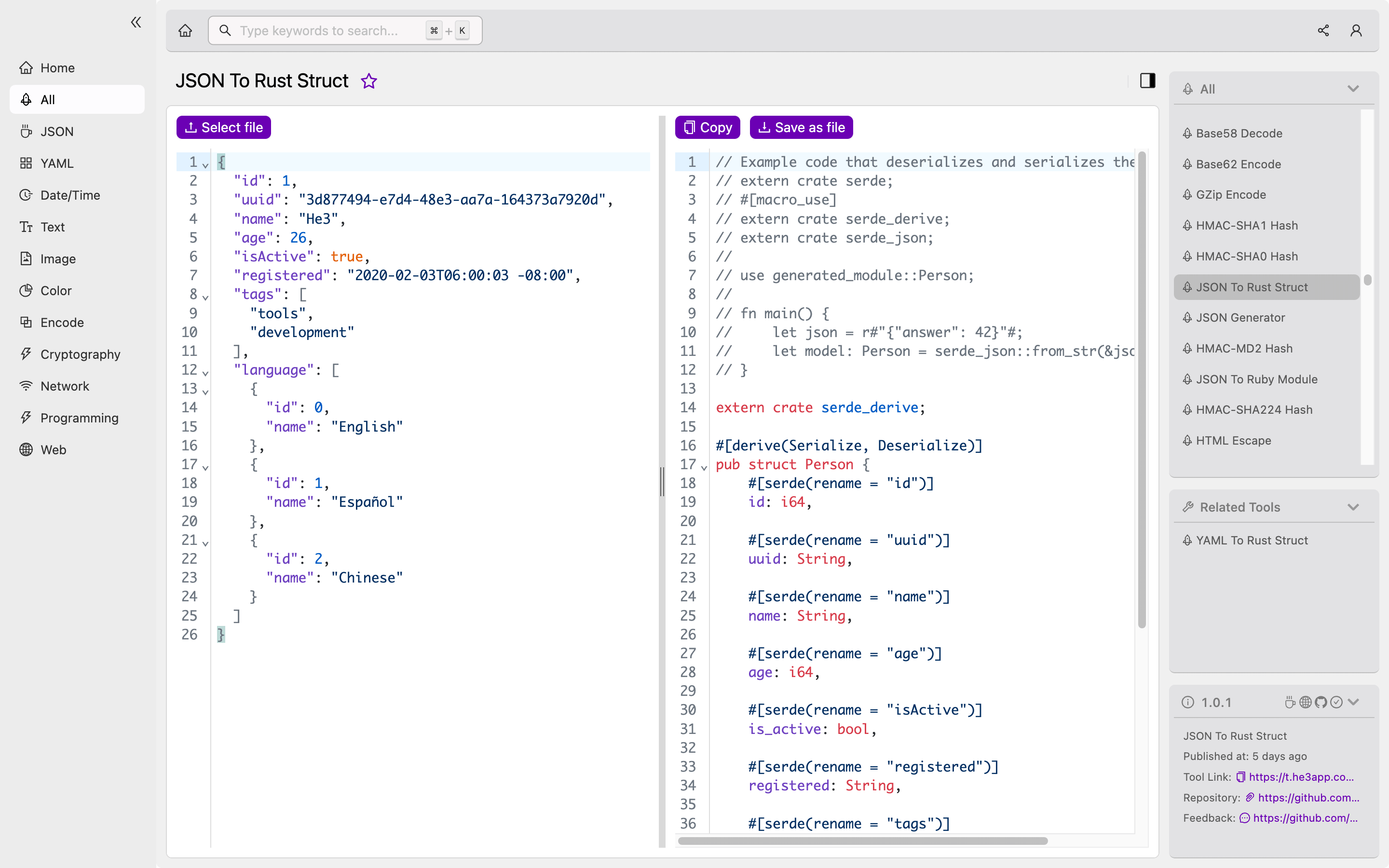Introduction
JSON or JavaScript Object Notation is a prevalent data exchange format that is used in many applications today. While Rust, on the other hand, is a fast and safe systems programming language that is gaining popularity. In Rust, a struct is a user-defined data type that allows you to group related data together. Converting JSON to Rust Structs can be a tedious task, especially when dealing with large datasets. However, with the right tools and techniques, this process can be streamlined.
How to Convert JSON to Rust Struct?
One of the most straightforward ways to convert JSON to Rust Struct is to use the serde crate. The serde crate is the most used Rust crate for serializing and deserializing data, and it supports JSON. You can easily add serde to your project’s dependencies by updating your Cargo.toml file as follows:
[dependencies]
serde = { version = "1.0", features = ["derive"] }
serde_json = "1.0"The serde_json crate is the official JSON implementation for serde. After adding these dependencies, deserialize the JSON data into Rust Struct using the serde_json::from_str method.
use serde::{Deserialize, Serialize};
#[derive(Debug, Deserialize, Serialize)]
struct Person {
name: String,
age: u8,
}
fn main() {
let json = r#"{"name":"John Doe","age":30}"#;
let person: Person = serde_json::from_str(json).unwrap();
println!("{:?}", person);
}Or you can use JSON To Rust Struct tool in He3 Toolbox (https://t.he3app.com?6jw1 ) easily.

Key Features
The serde crate offers various features that make converting JSON to Rust Struct easy and efficient. Some of the key features of serde include:
-
No boilerplate code:
serdeuses attributes to derive serialization and deserialization code, which eliminates the need for writing boilerplate code. -
Support for custom data formats:
serdesupports serialization and deserialization of custom data formats and data structures, making it a versatile tool. -
Flexible JSON data representation:
serdeprovides flexible representations of JSON data, making it easy to work with regardless of the complexity of the data.
Scenarios for Developers
Developers can use JSON to Rust Struct conversion in various scenarios, including:
-
Parsing API responses: When working with APIs, developers often deal with JSON data. Converting JSON to Rust Struct makes it easy to work with the data and perform further operations.
-
Reading configuration files: JSON is often used to store configuration data in applications. Converting this data to Rust Struct makes it easy to access and use the configuration data.
-
Storing data in databases: Rust is an efficient language for working with databases. Converting JSON data to Rust Struct makes it easy to store and query the data in the database.
Misconceptions and FAQs
Misconception: Converting JSON to Rust Struct requires extensive knowledge of Rust syntax.
False. Converting JSON to Rust Struct using serde is quite easy and requires only basic knowledge of Rust syntax.
FAQ 1: Can serde deserialize nested JSON data?
Yes, serde can deserialize nested JSON data.
FAQ 2: Does serde support other data formats besides JSON?
Yes, serde supports a wide range of data formats, including XML, YAML, and TOML.
Conclusion
Converting JSON to Rust Struct can be a straightforward process if you have the right tools and techniques. The serde crate makes it easy to deserialize JSON data into Rust Structs with ease. Developers can use this feature in various scenarios, including parsing API responses, reading configuration files, and storing data in databases. serde offers various features that make it an ideal tool for working with JSON data in Rust.
References:
